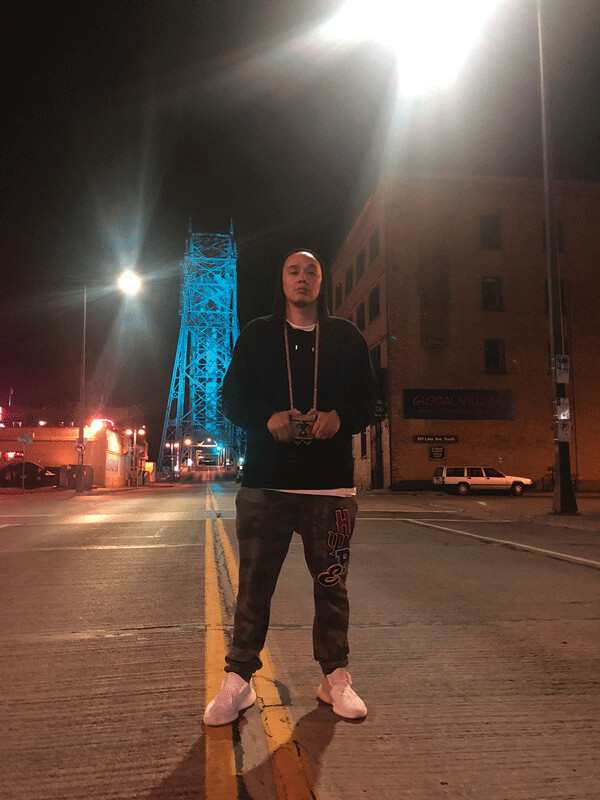News & Articles
Browse all content by date.

George Goggleye III, 34, also known as the rapper Wahwahtay Benais, is one of four musicians who will perform at the Indigenous Foods Expo Sept. 21. He grew up in Ball Club, 100 miles northwest of Duluth, on the Leech Lake Ojibwe Reservation.
He has performed nationally but is also an activist. His lyrics often focus on subjects such as cultural identity, decolonization or the history of Indian boarding schools and resistance. He has organized music exhibitions and workshops on community empowerment and reconnecting to traditional teachings and culture. He made multiple trips to Standing Rock during the ongoing protests there.
“People usually stereotype Native American culture as historical, almost like it’s dead,” he told the Reader. “So this expo is a way to reach out to the public and the community and let them know there is nothing historical about our people. We are still very much alive and still live this way of life. We live in the same modern world as everyone else.”
He received the name that he uses as his stage name in a ceremony when he was 16. He first performed at UMD for Native American month. “That was many years ago when I had a little stage fright. I’ve definitely grown since then.”
“I understand that rap in general still faces a lot of bias within certain generations and different personality types,” he said. “And I can see that my language and bluntness about the messages I am using to my music, to bring to the masses, may offend some people, even within the Native Community. But it is relevant.
“Yeah, there are traits that don’t include any historical value or meaning. But that’s me being me. I want to bring entertainment to the crowd as well. Hopefully people hear my music and it helps them to open their minds a little more and take notice of the Indigenous community they live in. It’s important for every culture of people to understand that my music empowers Native people and gives them a sense of survivance.” (Survivance is a term used in Native American studies meaning not mere survival but a rejection of victimhood.)
“We are still here, still living. Maybe we’re your neighbor, banker, teacher, doctor or police officer. You see us every day and we do have this traumatic past. We still live with the effects of it. When rap first hit the scene it was about bringing a message to people that wasn’t really talked about. Now through music and rap, people are more united. Knowing we’re connected and feel the same way as a people. We didn’t die, we survived.”
| Tweet |


